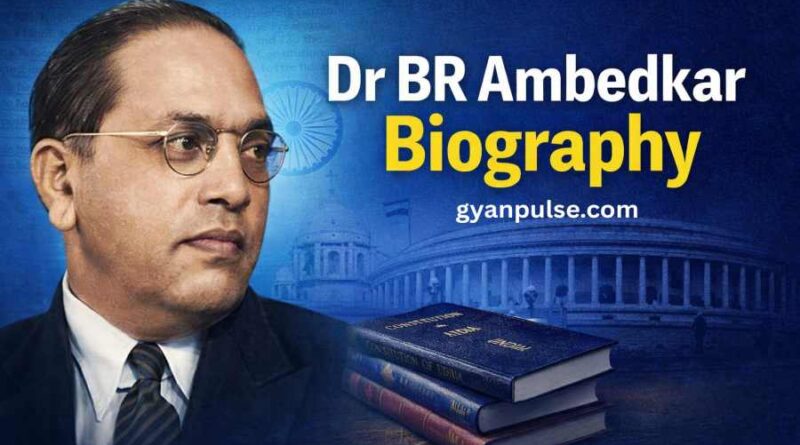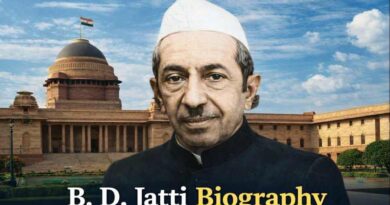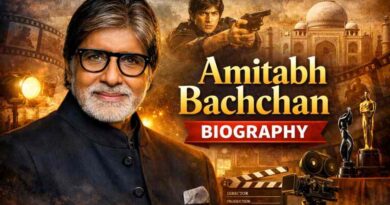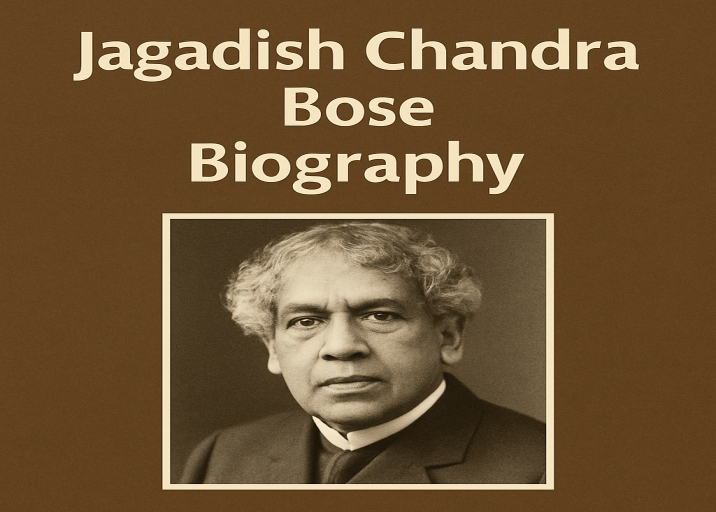Dr BR Ambedkar Biography – Life, Education and Legacy of the Father of Indian Constitution
Read Dr BR Ambedkar Biography to explore his life journey, education, social reforms, fight for Dalit rights, role in Constitution making and lasting legacy.
Dr BR Ambedkar Biography
Dr. Bhimrao Ramji Ambedkar, popularly known as Babasaheb Ambedkar, was a visionary leader, social reformer, and the principal architect of the Indian Constitution. He dedicated his entire life to the upliftment of the marginalized, particularly the Dalits (formerly known as “untouchables”), and fought against the deep-rooted caste system in India. His work still motivates Indians today to fight for fairness, equal rights, and respect for all.
Table of Contents
Early Life and Background
Dr. Ambedkar was born on 14 April 1891 in Mhow, a small military cantonment in present-day Madhya Pradesh. He belonged to the Mahar caste, which was considered untouchable by the orthodox Hindu society of that time. Despite the harsh discrimination he faced from a young age, Ambedkar was exceptionally bright and determined to get an education, a rare pursuit for a Dalit boy in those days.
His father, Ramji Maloji Sakpal, was a soldier in the Indian Army, and his mother’s name was Bhimabai Sakpal. From his early childhood, Ambedkar had to face social exclusion, even at school, he was not allowed to sit with other students or touch the water pot.
Education and Academic Achievements
Dr. Ambedkar was a brilliant student. He pursued higher education abroad thanks to a scholarship from the Maharaja of Baroda. He earned multiple doctorates from prestigious institutions:
- B.A. in Economics and Political Science from Elphinstone College, Bombay
- M.A. and Ph.D. from Columbia University, USA
- D.Sc. from the London School of Economics
- Law degree from Gray’s Inn, London
He became the first Indian to receive a PhD in Economics from a foreign university.
Political Career and Constitution Making
Dr. Ambedkar’s sharp legal mind and academic excellence made him a central figure in India’s freedom struggle and the creation of its Constitution. In 1947, after India gained independence, he was appointed as the first Law Minister of India and later became the Chairman of the Drafting Committee of the Constitution.
He was the principal architect of the Indian Constitution, which came into effect on 26 January 1950. His vision included:
- Fundamental Rights for all
- Abolition of untouchability
- Equal rights for women
- Right to constitutional remedies
Social Reforms and Dalit Rights
Ambedkar spent his life fighting for the rights of Dalits and other socially backward communities. He led several movements:
- Mahad Satyagraha (1927): For Dalits’ right to draw water from public tanks.
- Temple Entry Movement: A campaign led to allow untouchables the right to enter and worship in Hindu temples.
- Established the Bahishkrit Hitakarini Sabha for promoting education and socio-economic welfare among Dalits.
He launched newspapers like “Mooknayak” and “Bahishkrit Bharat” to voice the concerns of the oppressed.
Also Read: Swami Vivekananda biography: Life, Teachings, and Legacy of India’s spiritual icon
Conversion to Buddhism
In 1956, disappointed with Hindu orthodoxy and caste discrimination, Dr. Ambedkar converted to Buddhism along with over 500,000 of his followers. He saw Buddhism as a way to achieve equality, peace, and kindness. His decision to embrace it sparked the start of the Dalit Buddhist movement in India.
Death and Legacy
Dr. B. R. Ambedkar died on 6 December 1956 in Delhi. His birth anniversary, 14 April, is honored every year as Ambedkar Jayanti throughout India. He was posthumously awarded the Bharat Ratna, India’s highest civilian award, in 1990.
Today, Ambedkar is revered as a symbol of equality, empowerment, and justice. Statues and memorials in his honor can be found across India, and millions continue to follow his teachings and philosophy.
Impact of B. R. Ambedkar’s life
Dr. B. R. Ambedkar’s life is a powerful testimony to the idea that education, courage, and vision can break centuries-old chains of oppression. From a boy who was denied water in school to becoming the father of the Indian Constitution, his journey is one of the most inspiring stories in Indian history. His legacy remains alive through the democratic ideals of modern India and the social movements he inspired.
Relevance of Dr. B. R. Ambedkar in Modern India
Dr. B. R. Ambedkar’s ideas continue to guide India’s social and democratic journey even today. His emphasis on education, constitutional morality, and social equality remains vital in addressing issues like caste discrimination, social justice, and human rights. Ambedkar believed that true democracy must ensure dignity and equal opportunities for every citizen, not just political freedom. His thoughts inspire youth, policymakers, and social reformers to build an inclusive society based on liberty, equality, and fraternity.
Also Check: Biography
![]()




